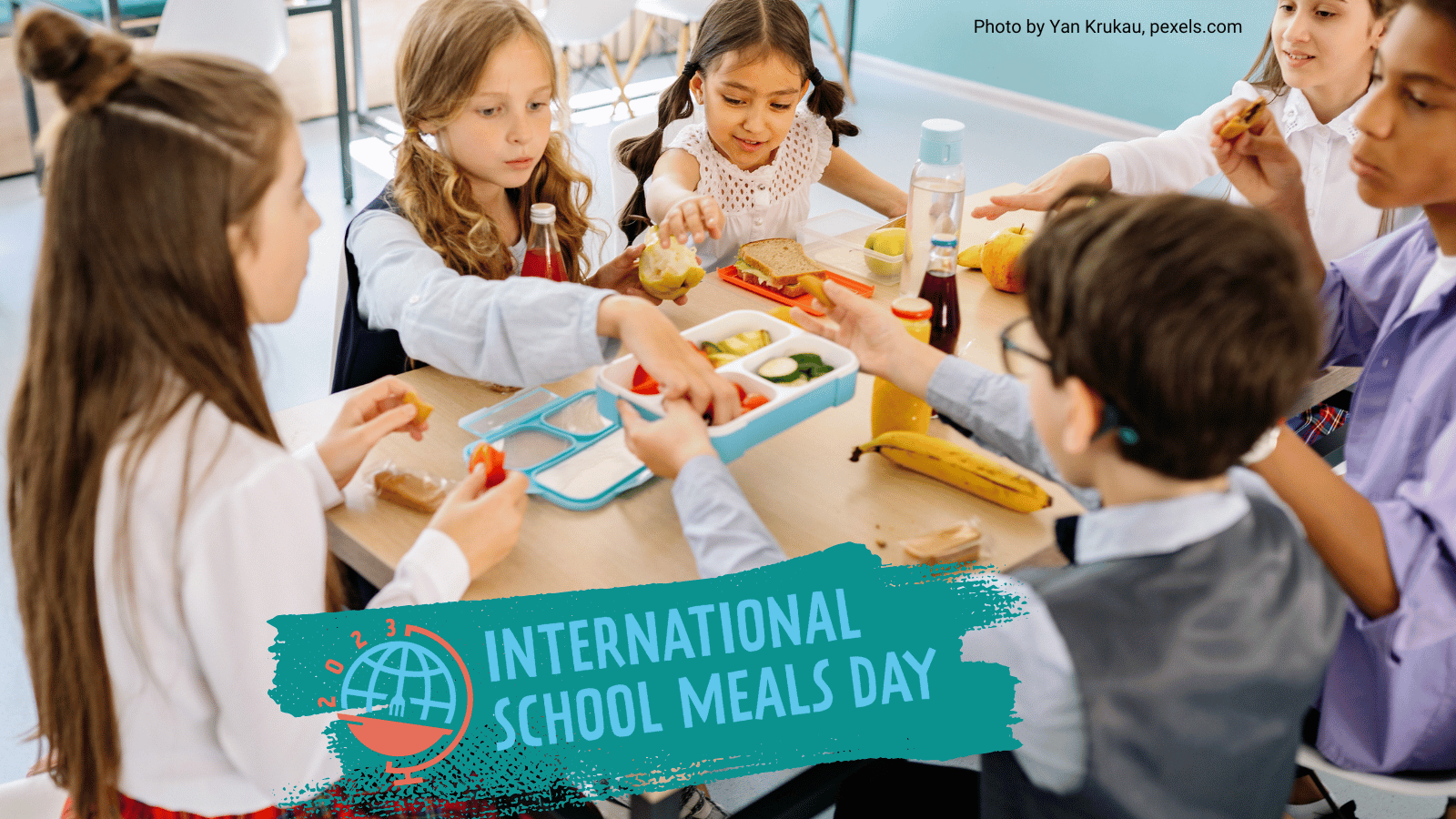Every year, many European organisations and institutions take the International School Meals Day as an occasion to raise awareness on the importance of providing healthy and sustainably produced meals to children. With the cost of living crisis impacting access and affordability of food, and with one in three kids in Europe being obese or overweight, this year’s theme “Our changing food – methods, menus, and meals” of the awareness day, which takes place on 9 March, highlights the need to pay attention to what is served in schools.
Besides changing the recipes and ingredients of dishes served in schools, there are many related tasks schools can commit to, to ensure that children have access to sustainably sourced food and develop healthy eating habits.
Across Europe, schools and cities are participating in the EU-funded project SchoolFood4Change to spread a new food culture from the plates in school canteens to the plates of everyone else by following a triple approach, which consist of implementing a ‘Whole School Food Approach’ (WSFA), establishing planetary health diets and cooking, and improving their public food procurement processes.
In total, SchoolFood4Change collaborates with more than 3,000 schools, supported by 43 organisations across 12 countries, creating a European support network with the opportunity to inspire each other, share good practices, advice and learning experiences. In times of increasing food prices and living costs, shortages of various raw materials and the climate crisis, the provision of school food, which is good for our health and the planet, and adequate education on related topics, such as the (local) food culture and cultivation, become more relevant, which is why many schools are welcoming the opportunity to participate in the project.
After kicking-off the work, schools now face the task of putting into practice the ‘Whole School Food Approach’ – a task that requires teamwork and involvement from school staff, school chefs and other staff, schoolchildren and other stakeholders, such as local government councillors and technicians, who often administer the school cafeterias. To provide schools and local/ regional authorities with the best possible support, SchoolFood4Change experts have developed guidelines and concepts to accompany schools’ change processes. The goal is to enable schools to offer and promote healthy and sustainably sourced food; and to empower pupils in making good food choices.
The ‘Whole School Food Approach’ is based on the fact that young children do not automatically prefer unhealthy food. In fact, teaching children about nutrition in school is associated with stronger implicit attitudes that healthy food is tasty. It’s a matter of creating the environment, in which children and youngsters prefer to eat healthy and sustainably sourced food.
The revision of existing public food procurement processes, i.e. the purchasing of food and canteen services by public authorities that administer these public canteens, constitutes an important step in the chain of providing healthy and sustainable meals in schools. Sustainable public food procurement is seen as a strong lever for transforming our current food system to a more sustainable one.
When it comes to food consumption, eating behaviour and nutrition knowledge, schools can be catalysts for systemic and multi-actor change. As local and regional governments often have the task of administering school cafeterias, they need to be provided with adequate support and guidelines to enable them to provide healthy and sustainably sourced school meals to all children.
